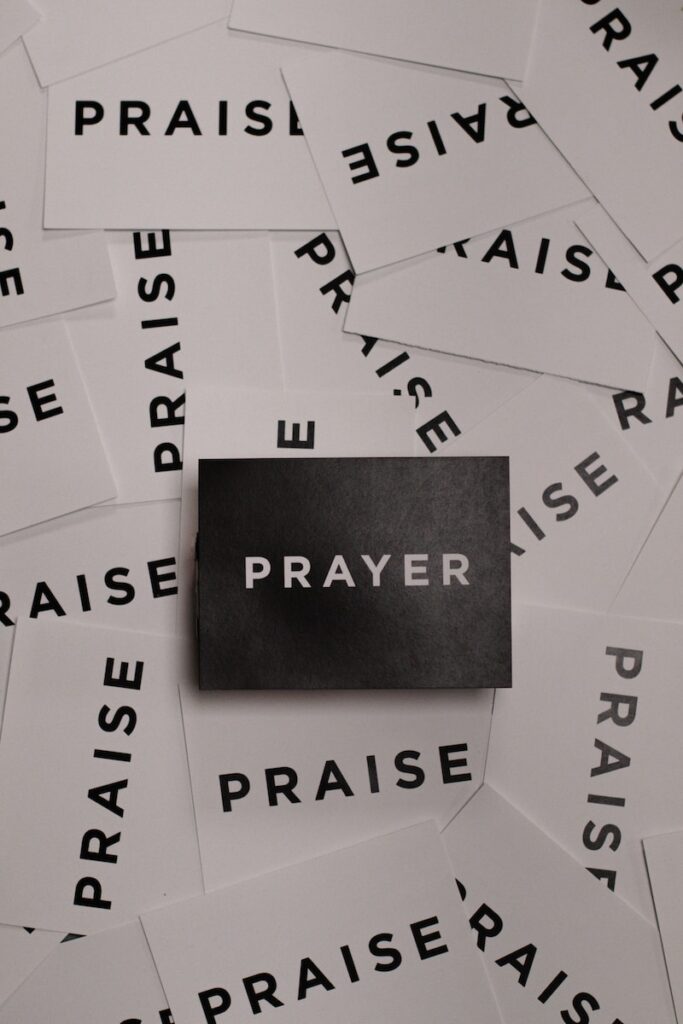How to Pray According to the Bible
Are you looking to deepen your prayer life and align it with the teachings of the Bible? Discovering how to pray according to the Bible can guide and inspire believers seeking a closer connection with God. From understanding the purpose of prayer to exploring different parts of prayer, we will delve into the essential elements that make prayer a transformative and powerful practice. Whether you are a seasoned believer or just starting your spiritual journey, this article will provide valuable insights to enhance your prayer life and bring you closer to God. So, let’s dive in and explore the beautiful gift of prayer together.
Contents
Why Pray?
Prayer is more than a means to an end. It’s an opportunity to connect with God and grow closer to Him. When we pray, we can talk with the Lord about anything and our needs. Prayer is a powerful way to connect with the one who created everything. When you talk with God, you can learn more about him, listen to his voice, and grow in your relationship with him. Check out Why Do We Pray? 3 Big Reasons for more reasons why we pray.

How to Pray
Jesus provided us with an example of how to pray with the Lord’s Prayer in Matthew 6:9-13. Adoration, Confession, Thanksgiving, and Supplication are four parts often used to guide praying. The acronym ACTS represents these parts of prayer found throughout the Bible.
Adoration:
When Jesus gives an example of prayer in Matthew 6, He begins it with “Our Father who art in heaven, Hallowed be thy name” (American Standard Version). “Hallowed be thy name” means God is honored as Holy. As you begin praying, remember who God is. You are talking to the creator of the universe! Adoration is expressed in songs of praise, praying a psalm of worship found in scripture, or meditating on the attributes of God.
Confession:
The next part of praying is confessing your sin to God and asking for His forgiveness. 1 John 1:9 says, “If we confess our sins, he is faithful and righteous to forgive us our sins, and to cleanse us from all unrighteousness” (ASV). God forgives what we have said, done, or even thought that is against how He has commanded us to live when we confess those sins. Confessing our wrongdoing brings us back to a good relationship with Him.
Thanksgiving:
Another essential part of prayer is thanking God for what He has done. Thanksgiving is different from adoration. We express adoration for WHO God is and thanksgiving for WHAT God did. Paul writes to the Philippians, “In nothing be anxious; but in everything by prayer and supplication with thanksgiving let your requests be made known unto God.”(Phl 4:6 ASV) Remembering what God has done keeps us in a better frame of mind. Gratitude for His work in our lives gives hope amidst controversy. We can thank God for big and small things, such as salvation, His Love, food to eat, clothes to wear, and protection.
Supplication:
The Latin root for supplication means to plead humbly. Up to this point, you have recognized God for who He is in worship, prayed for forgiveness for your transgressions, and thanked God for what He has done, humbling yourself before God. The final step in this prayer formula is to make your requests known to God. Paul listed all kinds of prayers for everyone. “First of all, then, I urge that supplications, prayers, intercessions, and thanksgivings be made for all people,” 1 Timothy 2:1 (ESV). Pray for your requests and make intercessory requests for your family, loved ones, friends, neighbors, leaders, etc. Your submissions can be as simple as asking for energy to get through the day or more complex, like wisdom in making a decision that affects you and your family.

How to Prepare Your Heart to Pray
Purity of heart
You do not have to be perfect to talk to God. But come to God with a forgiving spirit, in humility and repentance. After Jesus concluded the example of prayer, He said, “If you forgive those who sin against you, your heavenly Father will forgive you. But if you refuse to forgive others, your Father will not forgive your sins.” Matthew 6:14-15 (NLT)
Anyone truly remorseful of their wrongdoing is willing to forgive others who have wronged them. It doesn’t matter how big or small the transgression is. We must forgive those who hurt us because God forgives us. By not having a forgiving spirit, we act in a way that does not please God. If it seems too hard to do, ask God to help you be able to forgive.
Belief and confident expectation
Trusting God to care for us as He promised, seeking His guidance, and talking with Him in prayer strengthens our faith. Make your petitions known to God, believing He will answer your prayers. This belief comes from knowing who God is and that He has the power to do anything.
Jesus told many people their faith healed them. Each of them believed in who Jesus was and had confidence that He could heal them. In Matthew 9, a woman had suffered from a physical issue of blood for many years. She said, “If I only touch his garment, I will be made well” Matthew 9:21 (ESV). Her healing is what happened, and in verse 22, Jesus told her, “Your faith has made you well.” (ESV) She believed and came to Jesus with a confident expectation of healing and received it.
God’s will be done.
Asking “God’s will be done” is vital in prayer. “And this is the confidence that we have toward him, that if we ask anything according to his will he hears us. And if we know that he hears us in whatever we ask, we know that we have the requests that we have asked of him.” 1 John 5:14-15 (ESV) God wants us to pray about everything and to ask for what we desire. But, if you want your wish granted, it has to align with what God wants.
Jesus said, “If you abide in me, and my words abide in you, ask whatever you wish, and it will be done for you” John 15:7(ESV). The closer we walk with Jesus by reading the Bible and trying to live like Him, the more our desires align with God’s will. Then, when we ask for what we long for, we see more of our petitions granted because they align with His will.
In conclusion, prayer is a powerful way to connect with God, who is always there for us. Whether you like praying in the morning, evening, or at bedtime — it doesn’t matter. The important thing is that you’re spending some time in prayer. The more you do, the better you’ll feel about it and the closer you’ll be to God. The ACTS formula is a guide to help in praying. Your prayers can be as short or long as you want as long as you talk with God regularly!







